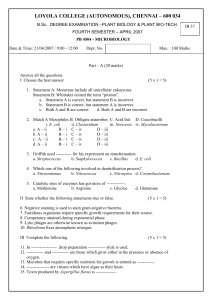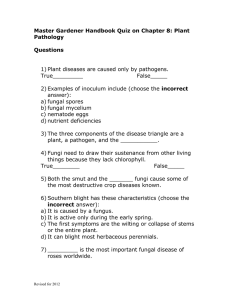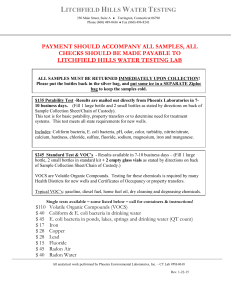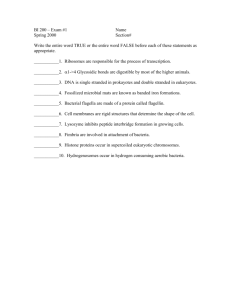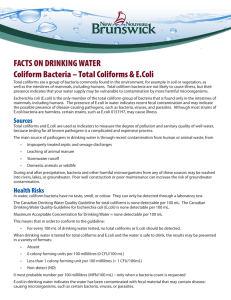LOYOLA COLLEGE (AUTONOMOUS), CHENNAI – 600 034
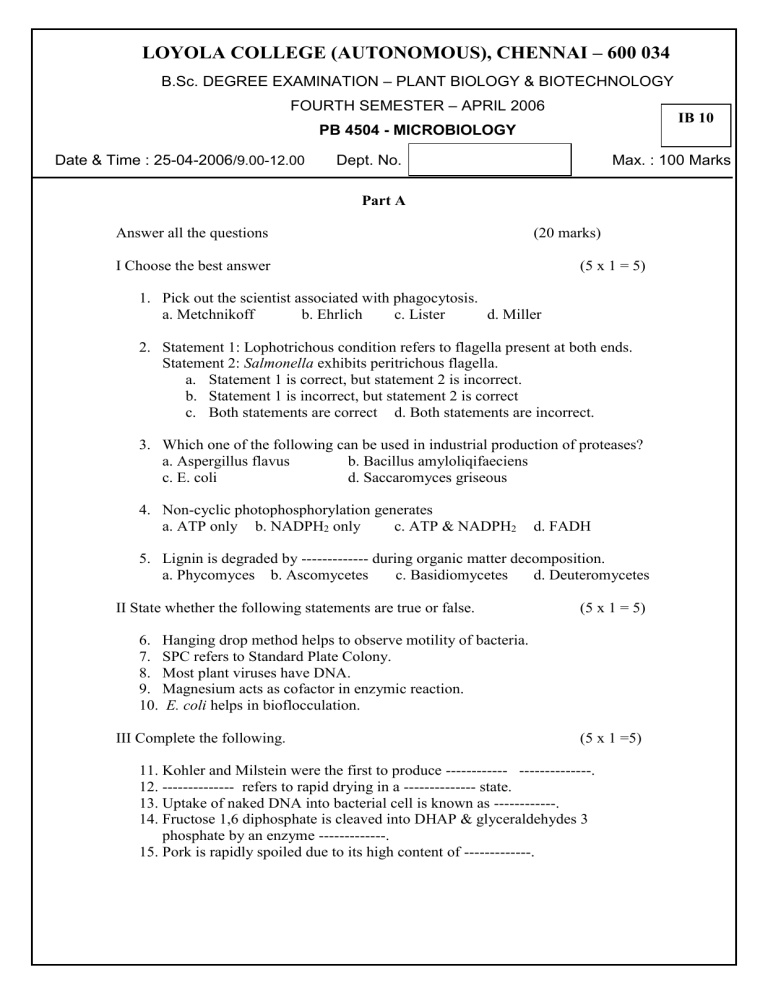
LOYOLA COLLEGE (AUTONOMOUS), CHENNAI – 600 034
B.Sc. DEGREE EXAMINATION
– PLANT BIOLOGY & BIOTECHNOLOGY
FOURTH SEMESTER
– APRIL 2006
IB 10
PB 4504 - MICROBIOLOGY
Date & Time : 25-04-2006 /9.00-12.00
Dept. No. Max. : 100 Marks
Part A
Answer all the questions (20 marks)
I Choose the best answer
1.
Pick out the scientist associated with phagocytosis. a. Metchnikoff b. Ehrlich c. Lister d. Miller
(5 x 1 = 5)
2.
Statement 1: Lophotrichous condition refers to flagella present at both ends.
Statement 2: Salmonella exhibits peritrichous flagella. a.
Statement 1 is correct, but statement 2 is incorrect. b.
Statement 1 is incorrect, but statement 2 is correct c.
Both statements are correct d. Both statements are incorrect.
3.
Which one of the following can be used in industrial production of proteases? a. Aspergillus flavus b. Bacillus amyloliqifaeciens c. E. coli d. Saccaromyces griseous
4.
Non-cyclic photophosphorylation generates a. ATP only b. NADPH
2
only c. ATP & NADPH
2
d. FADH
5.
Lignin is degraded by ------------- during organic matter decomposition. a. Phycomyces b. Ascomycetes c. Basidiomycetes d. Deuteromycetes
II State whether the following statements are true or false. (5 x 1 = 5)
6.
Hanging drop method helps to observe motility of bacteria.
7.
SPC refers to Standard Plate Colony.
8.
Most plant viruses have DNA.
9.
Magnesium acts as cofactor in enzymic reaction.
10.
E. coli helps in bioflocculation.
III Complete the following. (5 x 1 =5)
11. Kohler and Milstein were the first to produce ------------ --------------.
12. -------------- refers to rapid drying in a -------------- state.
13. Uptake of naked DNA into bacterial cell is known as ------------.
14. Fructose 1,6 diphosphate is cleaved into DHAP & glyceraldehydes 3 phosphate by an enzyme -------------.
15. Pork is rapidly spoiled due to its high content of -------------.
726820963
IV Answer the following in about 50 words each.
16. Why Gram staining is called a differential staining?
17. Distinguish between streptomyces and streptococci.
18. What is mycophage?
19. Define merozygote.
20. What are aflatoxin?
(5 x 1 =5)
Part – B
Answer any FIVE of the following, choosing not more than three in each section.
(5 x 8 = 40) Each answer not to exceed 350 words.
Section - A
21. Write down the salient aspects of Whittaker’s 5 kingdom concept.
22. Give the sequence of events which take place during the normal growth of bacteria.
23. In the form of a tabular column, bring out the various types of bacteriophages.
24. Expand the following with a footnote: a. BGA b. PPLO c. DMC d. TMV
Section – B
25. Give an account of industrial production of proteases. Add a note on their applications.
26. Write notes on the role of microbes in genetic engineering.
27. Illustrate and explain sulfur cycle.
28. Describe the process of penicillin production.
Part - C
Answer the following, not exceeding 1500 words each. Draw diagram wherever necessary. (2 x 20 = 40)
30.a. Classify bacteria based on shape and arrangement of cells, nutrition, temperature and oxygen requirement.
Or
b. Give an account of viruses based on the general characteristics, capsid nature, host range and tissue affinities.
31.a. Give a detailed notes on bacterial conjugation.
Or
b. Explain sewage waste water treatment.
______________
Page No. 2
